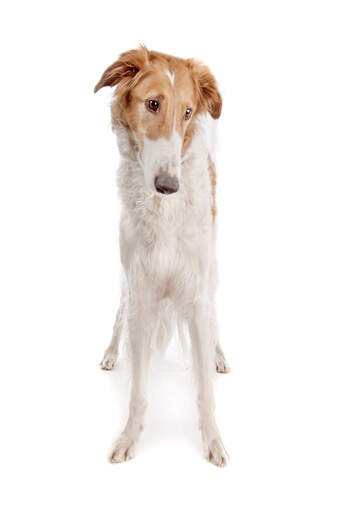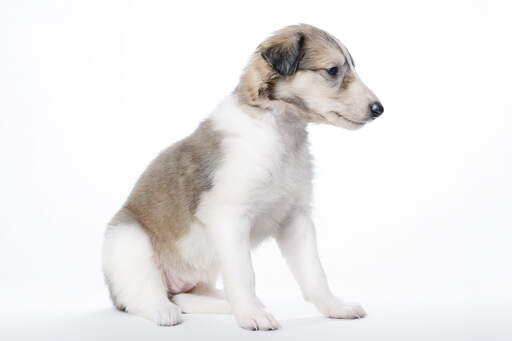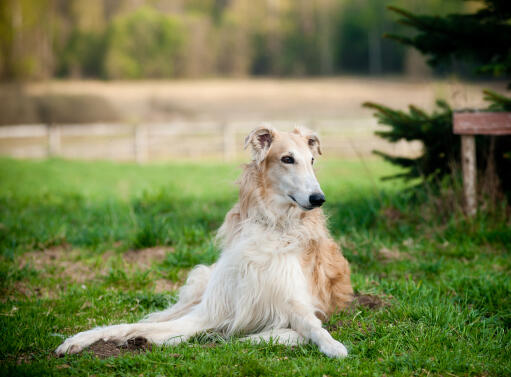Borzoi Dogs











History
Written records of the Borzoi, or Russian Wolfhound, date back to the 1600's in Russia, where the first book of Borzoi hunting rules can be found. Hare coursing was a popular sport in Russia as early as 1300 and Borzoi were used to chase rabbits, hare and wolves. Borzoi breeding was on a massive scale in Russia, where nobility would take up to 100 dogs out for a wolf hunt. After the Russian revolution, the breed was nearly lost, except for a few remaining Borzoi kennels. Today they are most commonly seen in the show ring and as pets.
Behaviour
Borzoi are regal and elegant dogs, asking for little from their owners. They are good house dogs within a family and like nothing better than a long sleep in a comfortable bed. They get on well with respectful children and other pets. Reserved towards strangers, but rarely show aggression, just quiet curiosity. They are affectionate and will want to sleep on your sofa or bed, which ever is comfiest. They like to be around people, but don't demand constant attention from their owners. Training takes patience as they sometimes feel that it is above them. They are clever, yet sensitive and have a natural respect for humans and require calm, gentle handling; raised voices can upset them. Guiding, clear communication and support is the best way to train a Borzoi. Borzoi can be lazy within the home, but once outside, their sighthound nature comes into it's own. They love to run and are fast, covering a huge distance with their Greyhound-like sprint. Walking needs to be done in a secure area, as if they see a rabbit they will be gone. A long walk on the lead will also tire them out, but allowing them a safe run will keep them happier. With recall it isn't that they don't want to come back, just that they have been bred for hundreds of years and they want to run as fast as they can. They rarely bark and are hopeless as a watchdog, simply lifting their heads out of their basket to see who is there, if they aren't in a deep sleep. They like to have an area to call their own, which gives them the peace they need to relax and get away from everything.
Health wise, they have a higher than usual occurrence of Gastric Torsion or Bloat. They are very sensitive to anesthesia.
Temperament
Borzois possess an independent and sensitive temperament. Without lacking affection for their owners they tend to be reserved and calm indoors saving their energy for high speed dashes across fields. They tend to be inpartial to strangers and love to chase small animals so are not suitable to be kept with cats unless introduced and trained in early puppyhood.
Health Problems
Health problems that may affect Borzois include various bone problems, bloat and some heart problems.
Breed Details
- Status: Common
- Life Expectancy: 10 - 12 years
- Weight: 25 - 47 kg
- Height: Min. 28"
- Rare: No
- Coat: Medium - Double
- Grooming Requirements: More than once per week
- Town or Country: Country
- Minimum Home Size: Large House
- Minimum Garden Size: Small to Medium Garden
- Breed Type: Hound
- Size: Large
- Energy Level: Medium
- Exercise Required: Up to 1 hour















